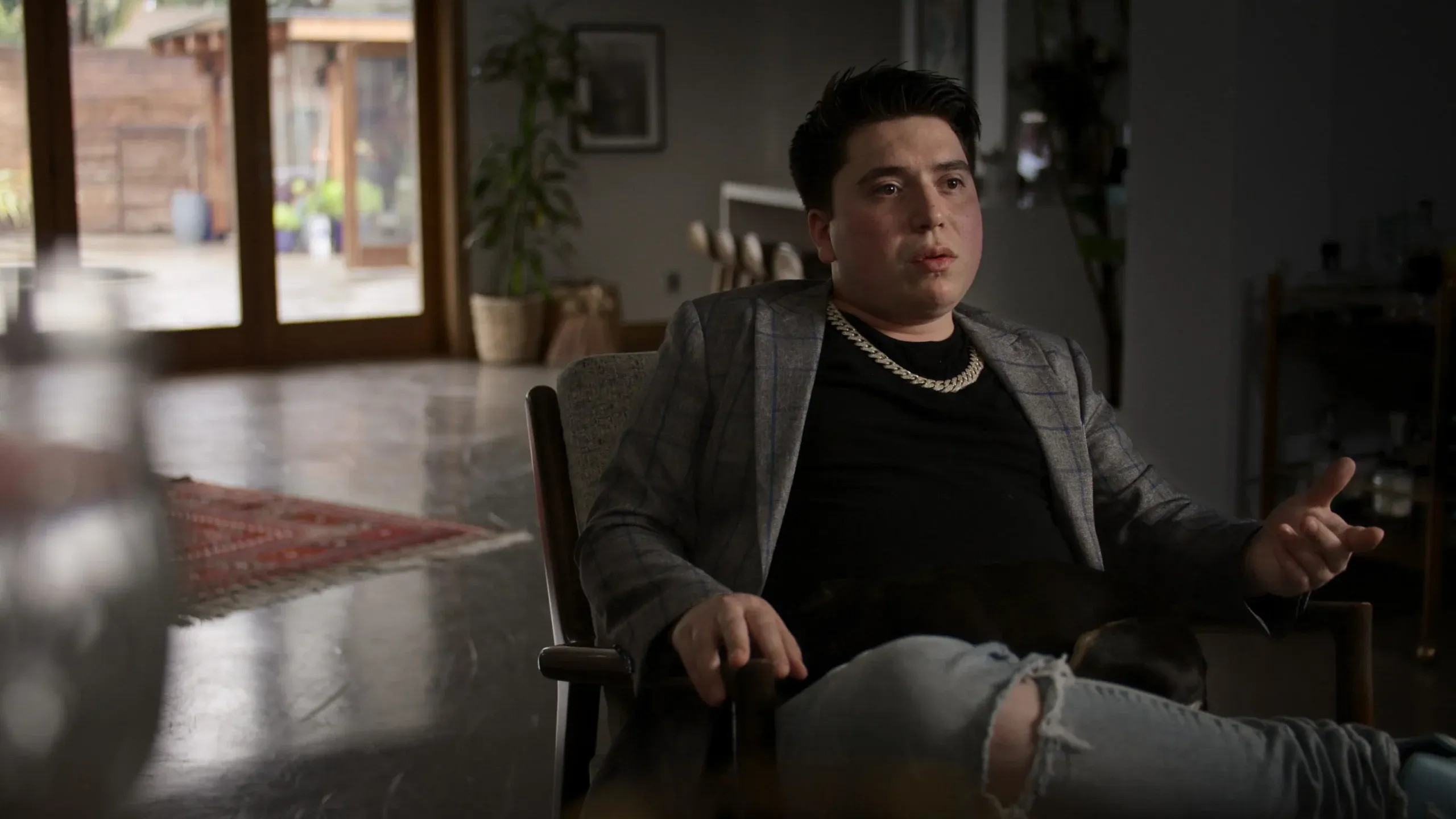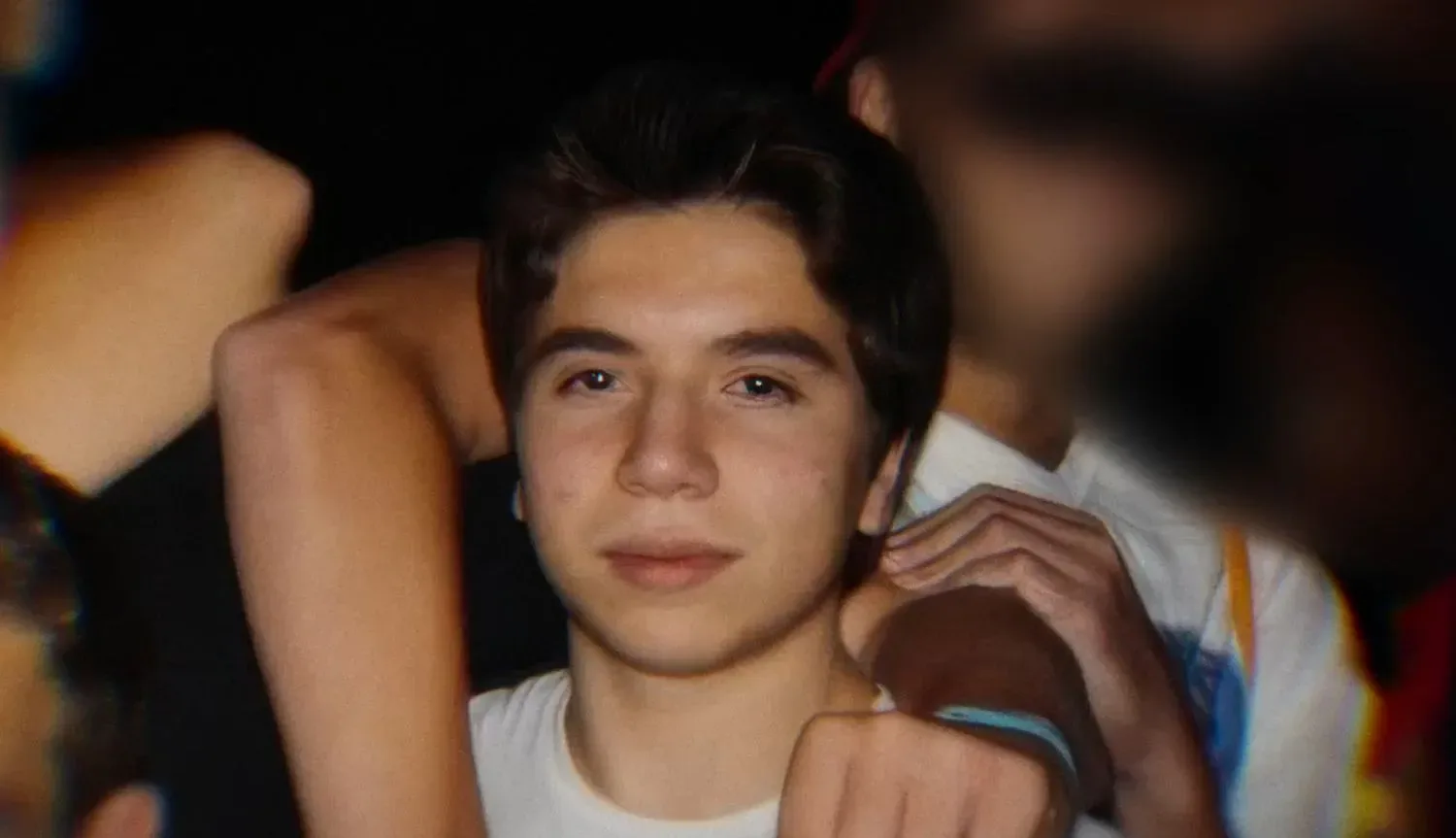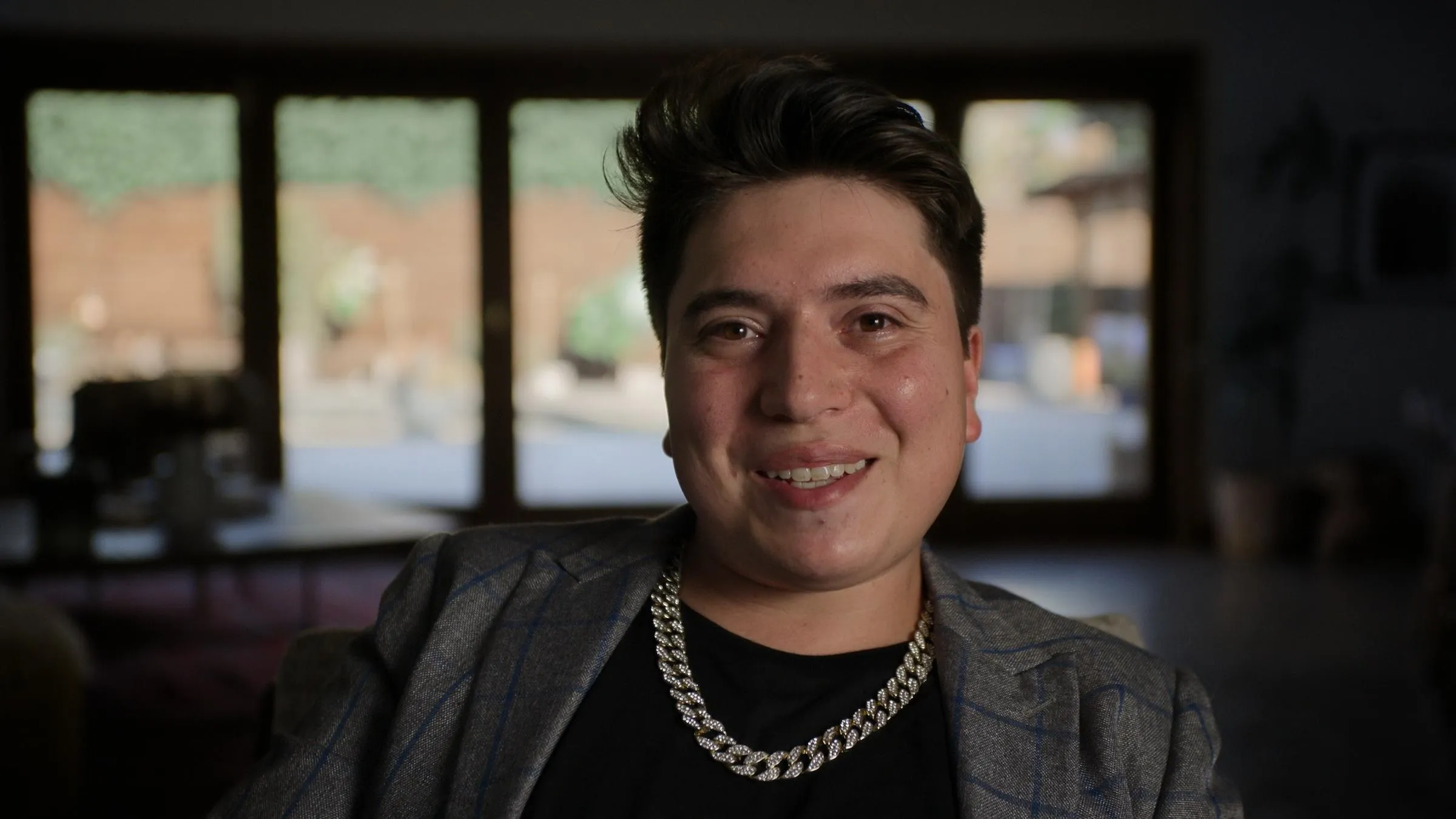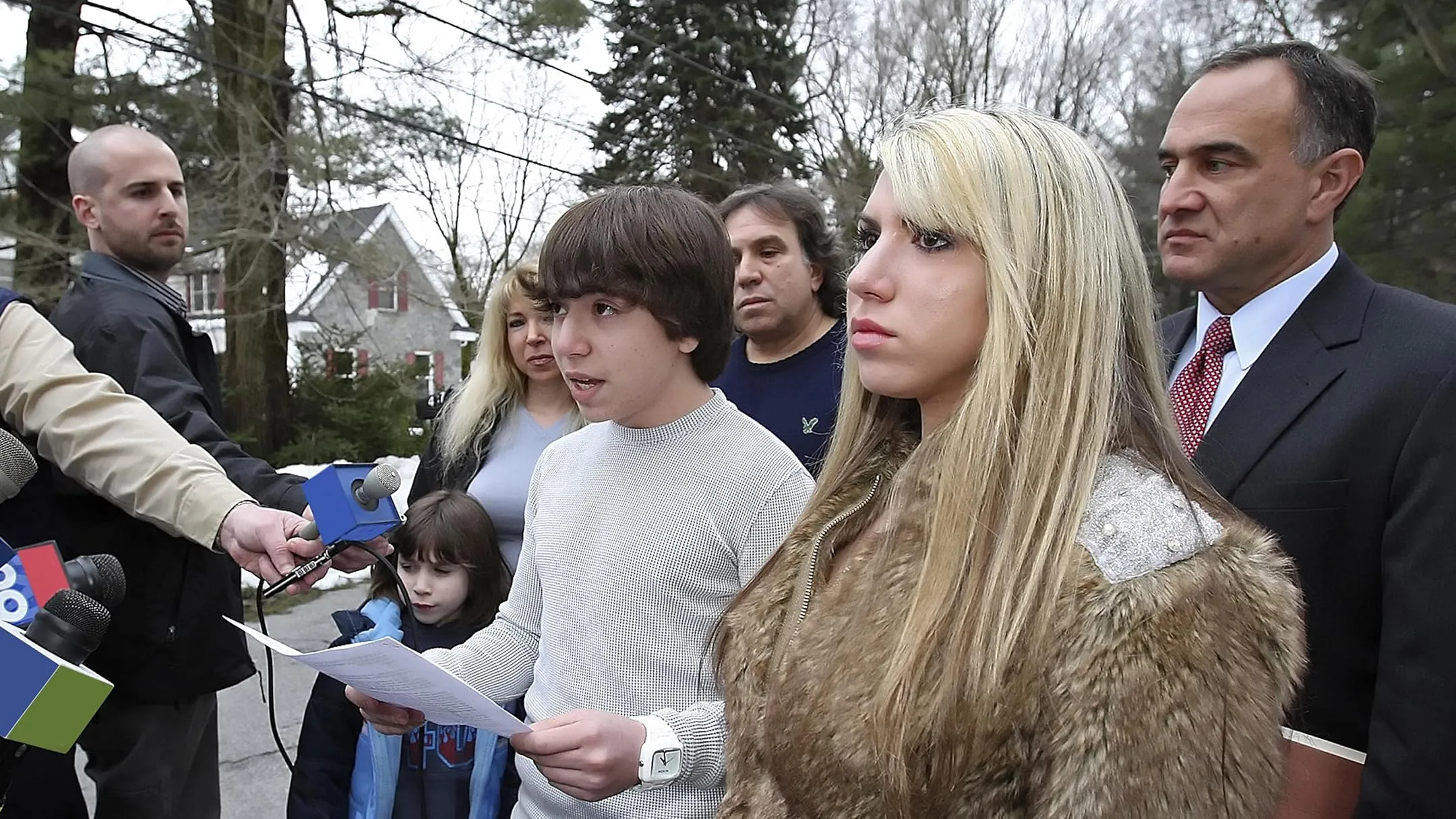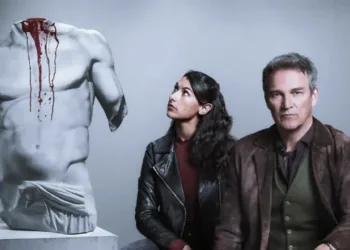Spy High recounts a scandal from 2010 at a suburban high school, captured in a four-part docuseries that reexamines how school policies collided with personal privacy. The series opens with the case of Blake Robbins, a 15-year-old who finds himself entangled in a dispute after his school appears to misuse technology intended to secure devices. Set against the backdrop of a well-to-do district, the series details how a school-issued laptop became an instrument of unauthorized observation, raising pressing questions about digital privacy and institutional trust.
At its core, the narrative follows Blake’s unexpected clash with authorities, as a routine educational tool transforms into an object of surveillance. The story unfolds through investigative reporting paired with reenactments that capture both the gravity and occasional absurdity of the situation.
The structure meticulously transitions from the spark of controversy—a startling discovery in a teenager’s private space—to an unfolding conflict that questions the practices of those in positions of power. This initial presentation serves to illuminate the layers of personal experience and systemic challenges, setting a measured tone that continually examines how the story is assembled and how each moment contributes to the emerging picture of privacy in a technologically advanced society.
Setting the Stage: Historical and Sociocultural Underpinnings
In 2010, Blake Robbins and his family took legal action against the Lower Merion School District after discovering unsettling evidence from a school-issued laptop. The incident began when an invasive image, captured by a remotely controlled webcam, set off a conflict concerning privacy and operational procedures. A private moment became a test for acceptable surveillance practices in a school where digital tools are seamlessly integrated into daily instruction.
The case exposed a system where software on school devices allowed remote access without prior consent. This oversight sparked a debate over the need for clear protocols on technological monitoring. The use of such software in a setting known for academic excellence raised questions about the implicit trust bestowed on institutions. In one example, a long-established reputation for high standards encountered a severe disappointment that betrayed the expectations of both students and their families.
The legal battle unfolded in an environment characterized by wealth and privilege, where academic achievements set the norm. The intrusive practice evolved into a matter scrutinized not just for its personal repercussions, but also for the legal procedures and ethical responsibilities involved in managing technology. A failure in effective oversight revealed a conflict between the ideal of protecting learners and the misuse of devices meant to support education.
Key figures behind this investigative series include director Jody McVeigh-Schultz and an executive producer with extensive industry experience, backing a project that offers a detailed study of modern surveillance practices. These legal and technological events resonate in a society increasingly defined by digital interactions.
The lawsuit triggered discussions among educators and decision-makers about the limits of institutional control and the right to privacy in learning environments. The series exposes the hidden costs associated with digital convenience while questioning assumptions concerning contemporary methods of academic management.
Constructing the Story: Episode Breakdown and Narrative Moments
Spy High unfolds its narrative over four episodes, each serving as a chapter in a layered investigation of institutional surveillance. The series divides its story into sequential installments that steadily build tension from the moment Blake Robbins is shown confronting evidence captured by a remote camera. This initial shock sets the stakes high, prompting both legal and personal investigations.
The episodic format lends itself to a measured escalation of events. Early segments focus on establishing character perspectives and the unfolding mishap involving webcam images taken without approval. The investigation moves through interviews with those directly involved, capturing the confusion and disruption felt by Blake’s family and other affected parties. Key interview footage is intercut with recreated scenes that heighten the impact of each revelation.
As the narrative progresses, moments of direct confrontation with system failures and administrative oversights provide critical turning points. The series achieves its dramatic peaks when evidence of unauthorized monitoring is paired with raw, personal testimony.
These sequences emphasize the stark reality of a system that trusted its technology to honor privacy. Against this backdrop, the structure raises questions about accountability and personal rights that linger long after each episode closes.
The production uses a mix of archival material and staged dramatizations to offer a visual record of events, while personal interviews capture a range of perspectives. Camera work is precise; close-ups focus on expressions that reveal inner turmoil, and editing sequences capture the rhythm of discovery with deliberate pacing. Audio cues and ambient sound work in tandem with the visuals to supply an atmosphere that is both somber and reflective, ensuring that every frame contributes to an effective, methodical storytelling approach.
Character and Performance Analysis
Blake Robbins emerges as the central figure whose transformation is laid out with clarity and quiet intensity. Initially introduced as a defiant youth, his evolution into a symbol of institutional conflict is marked by moments that balance wry humor with the weight of personal loss. His on-screen discussions carry both a self-aware charm and an unsettling recognition of his predicament, creating a memorable presence that anchors the story.
Blake’s family plays a vital supporting role. The recorded reactions of his parents and sibling provide additional layers, oscillating between raw frustration and an unexpected shine of reluctant notoriety. Their varied responses deepen the series’ emotional texture, reflecting the complex fallout of a public scandal.
Supporting voices—ranging from legal advisors to investigative reporters—fill in the intricacies of a case where technical missteps and systemic oversights collide. These interviews lend a credibility that smooths the transitions between personal testimony and factual exposition.
Reenactments intersperse with genuine interviews, the dramatized moments capturing the gravity of the situation while maintaining viewer engagement. The authenticity of the interviews, with minimal theatrics, underscores the seriousness of a tale that refuses to be simplified, steering clear of melodrama while maintaining a steady, thoughtful rhythm.
Directing, Production, and Technical Aspects
Director Jody McVeigh-Schultz crafts a presentation that pairs dramatic re-creations with straightforward documentation. Her method treats the subject with care, addressing delicate topics such as student privacy and family turmoil without losing the narrative’s integrity.
The series displays a refined visual style, where shot choices and lighting capture the stress and tension of each key moment. Editing is tight, allowing each segment to flow with purpose while keeping the viewer engaged throughout the unfolding events.
The auditory experience complements the visual elements; the score and sound effects underscore significant scenes, adding subtle depth to moments of high emotional impact. Technical elements work in unison, reinforcing the narrative by supporting its pace and clarity.
Societal Impact and Future Considerations
Spy High taps into debates about digital oversight and student privacy, challenging viewers to reexamine accepted practices in educational institutions. The case prompts renewed scrutiny of school rules and parental consent, stirring discussion on whether traditional policies fit modern digital realities.
The scandal serves as a catalyst for questioning customary procedures in environments historically seen as secure and progressive. Discussions in the series spark public dialogue around the limits of digital monitoring, prompting audiences to ask if current controls truly protect individual rights or undermine them.
The series hints at shifts in industry standards for investigative television, hinting at a future where such inquiries inspire changes in law and institutional behavior. Its approach may influence upcoming projects in documentary filmmaking, setting a benchmark for topics concerning privacy and systemic oversight. The work creates an active forum among viewers about the balance between technology and personal liberty, ensuring its impact lingers well beyond the screen.
The Review
Spy High
Spy High offers a measured retelling of a notable privacy scandal that captures both the human and technical facets of the case. Its carefully constructed narrative and well-traced character arcs hold attention through every episode, reflecting an effort to probe the challenges of digital oversight in schools while questioning established routines on personal privacy. The series effectively marries personal recollections with factual documentation to prompt viewers to reconsider accepted practices in educational settings.
PROS
- Engaging storytelling with a clear, evolving narrative.
- Strong character arcs, particularly for Blake Robbins.
- Effective mix of real footage with reenactments.
- Thoughtful examination of digital privacy issues.
- Steady pacing keeps viewers invested in the unfolding drama.
CONS
- Some segments feel overly prolonged.
- At times, the technical details overshadow emotional depth.
- Reenactment dramatizations may come off as excessive.









































